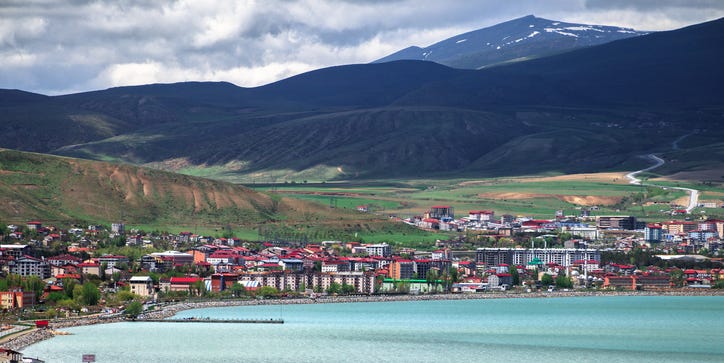The Rumors Were True: Ancient Castle Found Below Turkish Lake
Sometimes, the local legends are more than just tall tales.

GettyFeng Wei Photography
By David Grossman
Local mythology scored a victory over modern archaeology when divers discovered ancient ruins around 3,000 years old at the bottom of a lake in eastern Turkey.
Lake Van sits near Turkey's border with Iran. It is the world's largest salt water lake and one of the world's largest endoheric bodies of water, meaning it has no outlet to the ocean. The Uratu kingdom ruled the area for hundreds of years, from 860–590 BC, and legends held that Uratu ruins lay beneath the waters. But Tahsin Ceylan, head of the diving team from Van Yuzuncu Yil University, was told repeatedly that searching the country's biggest lake was a waste of time.
"There was a rumor that there might be something under the water, but most archaeologists and museum officials told us that we won't find anything," Ceylan told the Turkish Daily Saba. Ceyland his team persistend, and they found a 3,000-year old Uratu castle at the bottom of the lake.
Because it has no outlet to the ocean, Lake Van has been prone to drastic rises and falls in its water levels. When the water level was low thousands of years ago, Uratu colonies made their homes there. According to the divers about 9 to 14 feet (3 to 4 meters) of castle walls are visible below the lake, with mud covering the rest. It's clear that they had an extended period time living there before the water rose again. "We will have to hold underwater excavations to find out about that" Ceylan told the Daily Saba, meaning that the exploration of the underwater site will continue.
Lakes can hold surprising secrets beyond ancient ruins. The Lost Lake in Oregon, for example, one ups Lake Van in terms of rising and falling: It disappears completely.
No comments:
Post a Comment